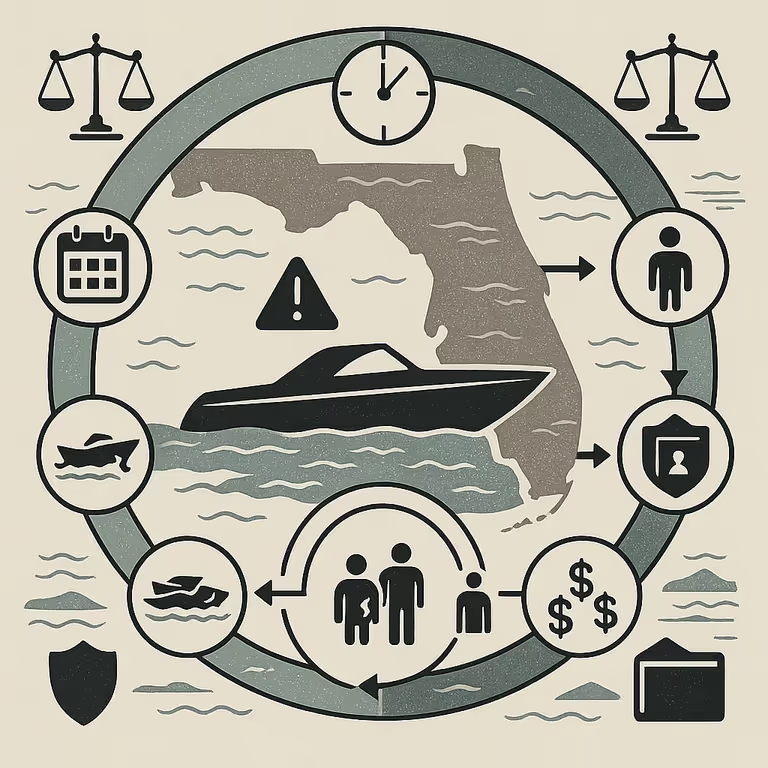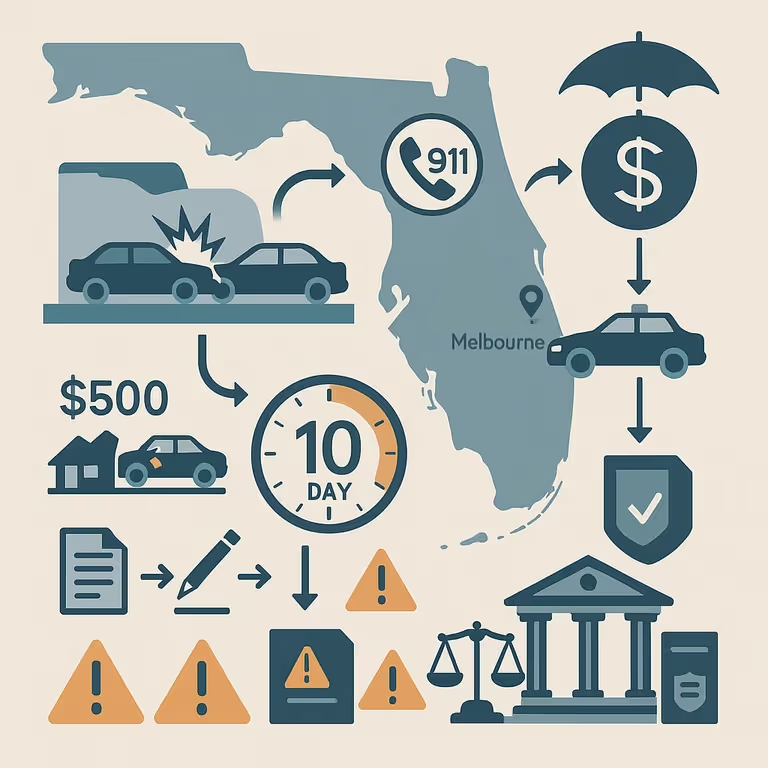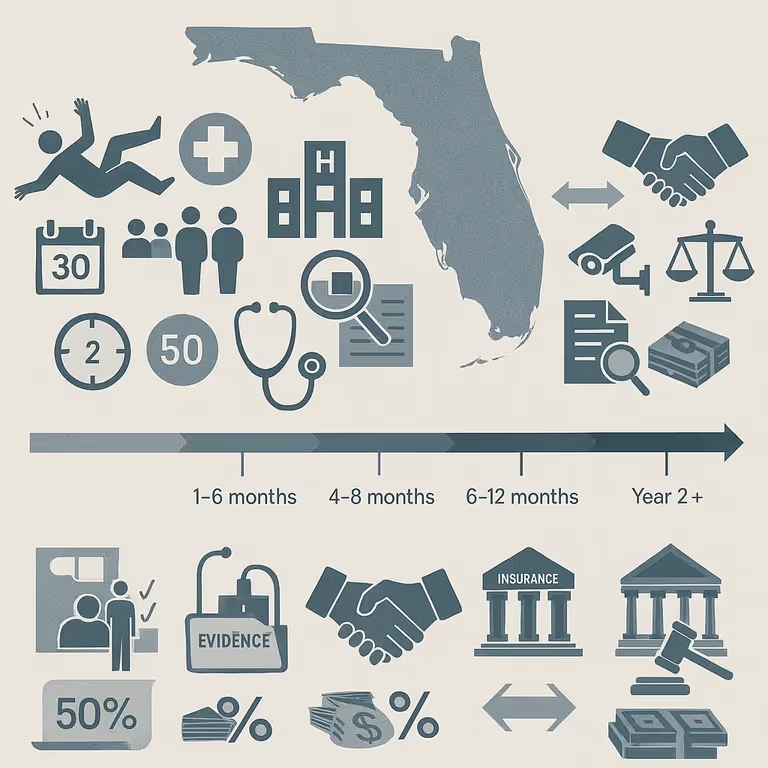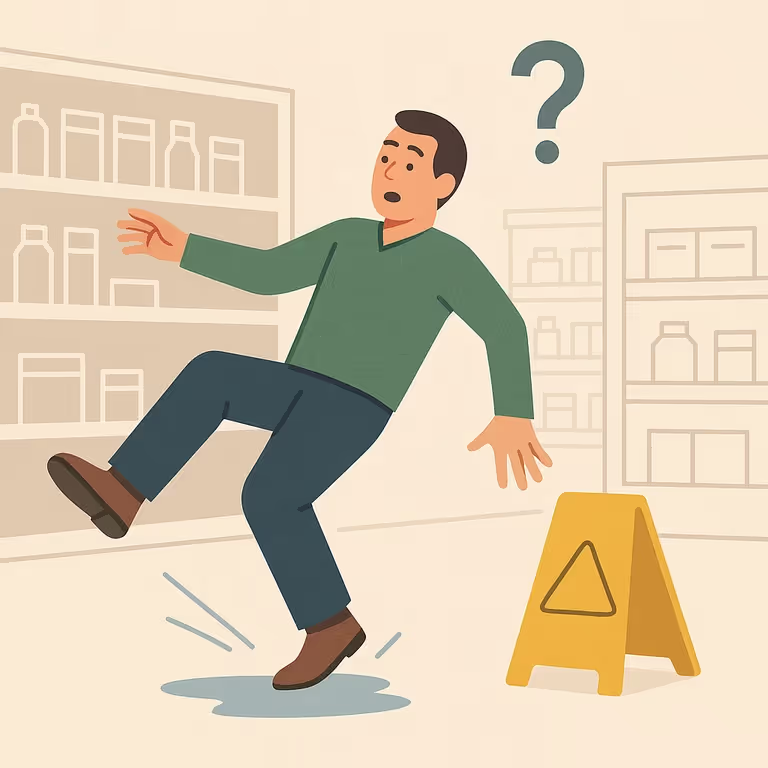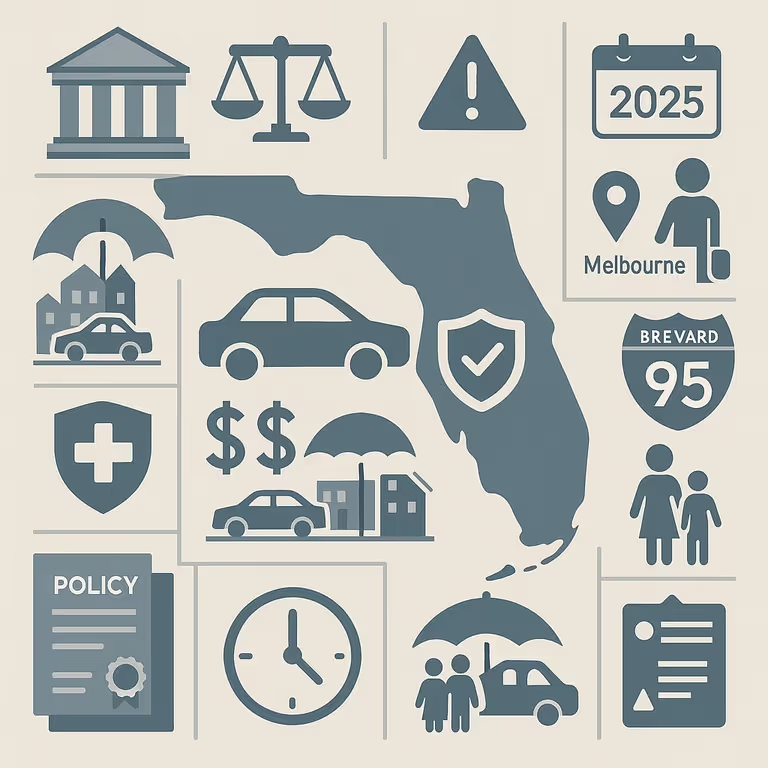Can You Make a Car Accident Claim Without a Police Report in Florida?
Can you file a car accident claim in Florida without a police report? Yes. Learn steps, evidence requirements, & how recent tort reforms affect your case.
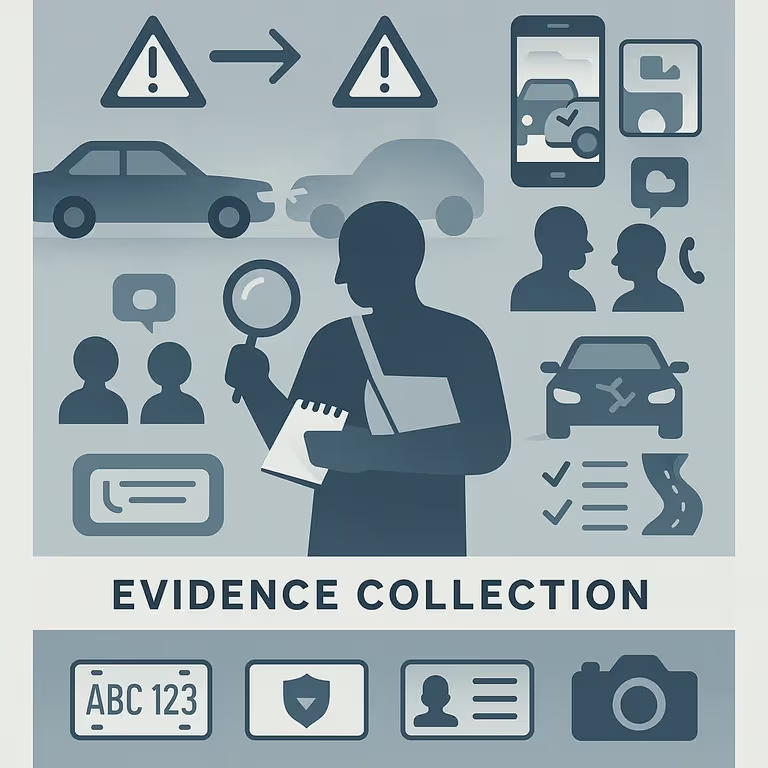
- Florida only requires police reports for accidents with injury, death, or $500+ property damage, but thorough documentation is crucial without one.
- Your PIP insurance covers medical expenses regardless of fault, while new comparative negligence rules affect other damage claims.
- Recent tort reforms make fault determination more critical, preventing recovery if you're found more than 50% responsible.
Worried About Your Injury Case? We'll Review It - Free!


Picture this scenario: You're backing out of a parking space at the Melbourne Square mall when another driver clips your bumper. Both cars have minor damage, no one appears injured, and when you call 911, they tell you police won't respond to such a minor accident. You exchange information with the other driver, but as you drive home, a nagging worry sets in: Can you still file an insurance claim without an official police report?
This situation plays out daily across Melbourne and Brevard County, leaving many Florida residents uncertain about their rights and options. The good news is that you absolutely can pursue a car accident claim without a police report, but understanding Florida's specific requirements and taking the right steps is crucial for protecting your interests.

Understanding Florida's Police Report Requirements for Car Accidents
Florida law doesn't require police reports for every fender bender. Under Florida Statute 316.065, drivers are only required to immediately contact law enforcement when a crash results in injury to any person, death, or at least $500 in estimated property damage to any one person's vehicle or property. This means that truly minor accidents with minimal damage and no injuries fall below the threshold for mandatory police involvement.
However, there's an important distinction to understand: ANY injury, no matter how seemingly minor, triggers the requirement to contact law enforcement. A small cut, brief headache, or minor soreness all count as injuries under the law. This is why many experienced Melbourne car accident attorneys recommend calling police even for seemingly minor accidents – what appears to be just property damage initially may involve injuries that become apparent later.
The $500 property damage threshold might seem low in today's economy, where even minor repairs can easily exceed that amount. A small dent or scratched bumper can cost $800 or more to repair properly. This means many accidents that initially appear minor actually do require police notification once repair estimates are obtained.
Even when police reports aren't legally required, Florida drivers always have the option to file a driver self-report with the Department of Highway Safety and Motor Vehicles within ten days of the accident, provided the crash meets certain criteria. While not the same as an official police investigation, this self-reporting can provide some documentation of the incident.

Immediate Steps When Police Don't Respond to Your Accident Scene
When police don't come to your accident scene, you become the primary investigator and documentarian. Your actions in those crucial first moments can make or break your insurance claim later. Safety must always come first – if vehicles are blocking traffic or creating hazards, move them to a safe location if possible, but leave them exactly where they stopped if anyone might be injured.
Once you've ensured everyone's safety, begin comprehensive evidence collection. Use your smartphone to photograph everything from multiple angles: the overall accident scene, each vehicle's damage, license plates, street signs, traffic signals, skid marks, debris, and the exact positions of the vehicles. Take wide shots showing the intersection or road layout, then close-ups showing specific damage details. Don't forget to photograph the other driver's license, registration, and insurance card.
Gather complete information from all drivers involved: full names, addresses, phone numbers, driver's license numbers, insurance companies, policy numbers, and vehicle information including make, model, year, color, and VIN if accessible. If passengers are present, collect their information as well, as they may serve as witnesses later.
Witness information can be invaluable when no police report exists. Approach any witnesses calmly and ask for their contact information and a brief statement about what they observed. Many people willingly help but may leave quickly, so gather this information immediately. Use your phone's voice memo function to record their statement if they agree.
Document environmental factors that might have contributed to the accident: weather conditions, road surface conditions, time of day, lighting conditions, and any construction zones or traffic control devices. These details may seem unimportant initially but can become crucial if fault becomes disputed later.

Filing Your Insurance Claim Under Florida's No-Fault System
Florida's no-fault insurance system provides significant protection for accident victims, regardless of who caused the crash or whether a police report exists. Under this system, your own Personal Injury Protection (PIP) insurance covers 80% of your medical expenses and 60% of your lost wages up to $10,000, regardless of fault determination. This coverage kicks in immediately and doesn't depend on proving the other driver was responsible.
To activate your PIP coverage, contact your insurance company immediately – ideally within 24 to 48 hours of the accident. Florida law requires "prompt" notification, and delays can potentially jeopardize your coverage. When reporting the claim, provide all the documentation you gathered at the scene: photos, witness information, driver details, and your recorded recollection of events.
For property damage claims, you'll typically deal with the at-fault driver's insurance company. However, when no police report exists to establish fault, insurance companies conduct their own investigations. They'll examine your photos, interview drivers and witnesses, review damage patterns, and may even send an adjuster to inspect the vehicles and accident scene.
Be prepared for more scrutiny from insurance companies when no police report exists. They may ask detailed questions about the accident circumstances, request additional documentation, or take recorded statements from all involved parties. While you should cooperate fully and honestly, consider consulting with an experienced attorney before providing recorded statements, especially if the accident circumstances are complex or fault is disputed.

Building a Strong Case: Essential Evidence and Documentation
When no police report exists to provide an official account of your accident, the evidence you collect and preserve becomes exponentially more important. Insurance companies and courts rely heavily on documentation to determine fault and assess damages, making comprehensive evidence collection your best protection against claim denials or disputes.
Medical documentation forms the foundation of any injury claim. Even if you felt fine immediately after the accident, seek medical attention within 72 hours if you experience any discomfort, pain, or other symptoms. Emergency room visits, urgent care consultations, or appointments with your primary care physician create crucial medical records linking your injuries to the accident. Follow all treatment recommendations and attend all follow-up appointments, as gaps in treatment can be used to question the severity or accident-relatedness of your injuries.
Vehicle damage documentation goes beyond initial photos taken at the scene. Obtain written repair estimates from reputable auto body shops, keep all receipts for repairs or towing, and maintain records of rental car expenses if your vehicle is undrivable. If your vehicle is declared a total loss, preserve documentation of its pre-accident value and condition.
In Melbourne and Brevard County, surveillance camera footage can be invaluable evidence. Many businesses, traffic intersections, and residential areas have security cameras that may have captured your accident. Contact nearby businesses, the city or county traffic department, and even residential properties to inquire about surveillance footage. Act quickly, as many systems automatically delete footage after 30 days or less.
Know Your Legal Rights: Recent Florida Law Changes and Protections
Florida's legal landscape for personal injury claims changed significantly in 2023 with the passage of HB 837, creating new challenges and considerations for accident victims, especially those without police reports to establish clear fault determination. Understanding these changes is crucial for protecting your rights and making informed decisions about your claim.
The most significant change involves comparative negligence rules. Florida previously followed "pure comparative negligence," meaning you could recover damages even if you were 99% at fault for an accident, though your recovery would be reduced by your percentage of fault. Under the new "modified comparative negligence" rule, if you're found to be more than 50% at fault for the accident, you cannot recover any damages from other parties.
This change makes fault determination more critical than ever before. When no police report exists to provide an official fault assessment, insurance companies and courts must rely heavily on other evidence to determine each party's percentage of responsibility. The evidence collection and documentation strategies discussed earlier become essential for ensuring you're not unfairly assigned excessive fault.
If you've been in an accident without a police report in Melbourne or anywhere in Brevard County, don't wait to get the help you need. Douglas R. Beam P.A. has been serving Central Florida residents since 1988, with over $1 billion in verdicts and settlements demonstrating our commitment to achieving the best possible outcomes for our clients. Our experienced team understands Florida's unique no-fault insurance system, recent legal changes, and the specific challenges of building strong cases without police reports.
Contact us today for a free case evaluation and let our experience work for you. Your case deserves the attention of attorneys who understand both the law and the real-world challenges you're facing.
This article provides general information and is not a substitute for legal advice. Laws can change, and the details of your situation matter. For personalized guidance, please contact a qualified Florida personal injury attorney.
Not Sure What To Do Next? We Can Help – Fast & Free.
Worried About Your Injury Case?
We'll Review It - Free
Don’t miss an article
Florida law, local insights, and the occasional dog pic.
Delivered straight to your inbox.
More articles
Browse all articlesFree Case Review
Get a complimentary review of your case

.webp)
.png)
.png)

